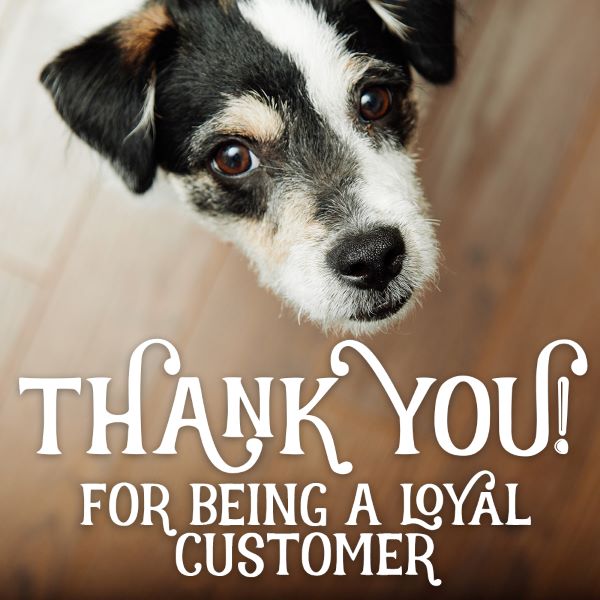Are you tired of constantly chasing new customers while your existing ones drift away? For small businesses, building lasting relationships is a smart business strategy.
This post explores seven practical relationship marketing approaches that can transform casual buyers into loyal advocates. Learn how focusing on relationship marketing strategies for small businesses can dramatically reduce your marketing costs while creating a sustainable competitive advantage that big businesses can’t easily replicate.
Relationship Marketing Strategies for Small Businesses
Relationship marketing strategies for small businesses involve long-term approaches that focus on building strong, emotional, and personalized connections with customers. These strategies prioritize customer retention, loyalty, and satisfaction over one-time sales by fostering trust, promoting meaningful engagement, maintaining consistent communication, and encouraging community involvement—all while being scalable and affordable for small business operations.
“The new relationship marketing focuses on working hand-in-hand with your prospects and customers to co-create a more meaningful, personalized, and lasting experience.” ~ Mari Smith
In a small-town bakery, the owner, Rebecca, knows exactly how each regular customer takes their coffee. She remembers their kids’ names and their favorite pastries. When Charley, a loyal customer for five years, mentioned his daughter’s upcoming graduation, Sarah surprised him with a specially decorated celebration cake.
This simple gesture created a customer for life.
That’s the power of relationship marketing in action.
Relationship marketing focuses on building strong, emotional connections with customers for long-term loyalty rather than pursuing quick, one-time sales. Unlike transactional marketing that emphasizes immediate purchases, relationship marketing invests in customer experience, retention, and lifetime value.
According to HubSpot research, acquiring a new customer costs 5 to 25 times more than retaining an existing one. For small businesses with limited marketing budgets, focusing on building stronger relationships with current customers is good practice and smart economics.
📍Below are seven proven relationship marketing strategies for small businesses that strengthen loyalty and increase long-term value.
Understand Your Customer Journey
The path your customers take from discovering your business to becoming loyal advocates isn’t just a series of transactions; it’s an emotional journey. And here’s the most important part: this journey exists entirely from your customers’ perspective, not yours.
A customer’s experience is defined by how they feel during interactions with your business, not by how well you think you’ve served them. This distinction matters tremendously. Start by mapping your customers’ journey from their point of view.
- What emotions do they experience at each touchpoint?
- Where might they feel frustrated, confused, or delighted?
For example, a local pet grooming service discovered, through customer interviews, that while they provided excellent grooming, clients often felt anxious during the waiting period. By implementing a simple text message update system with photos of pets during grooming, they transformed an anxiety-producing wait into a moment of connection.
A Quick Tip on Relationship Marketing Strategies for Small Businesses
Gather feedback about how customers feel at critical touchpoints, not just what they do. Their emotional experience creates the foundation for relationship building.
Create Valuable Content That Educates
When you consistently provide content that helps customers solve problems, without immediately asking for a sale, you position your business as a trusted advisor rather than just another vendor.
A neighborhood garden center could share seasonal planting guides, troubleshooting tips for common plant problems, and video tutorials on garden maintenance. This approach builds credibility and keeps the business top of mind when customers are ready to make a purchase.
📍According to DemandMetric, content marketing costs 62% less than traditional marketing while generating three times as many leads. For small businesses with tight budgets, this approach delivers exceptional value. The key is consistency and relevance. Create content that directly addresses your customers’ questions and challenges and deliver it where they already spend time, whether that’s email, social media, or your website.
Build a Community Around Your Brand
Humans naturally seek connection. When your small business facilitates meaningful interactions between customers who share common interests, you create a powerful emotional bond that transcends transactions.
A local running store exemplifies this approach by hosting weekly community runs, maintaining an active Facebook group where members share routes and achievements, and celebrating customer milestones, such as the first marathon. These activities transform customers into community members who feel a sense of belonging to the brand.
Community building is one of the most impactful relationship marketing strategies for small businesses because it taps into deeper emotional needs. People may forget exactly what you sold them, but they’ll remember how you made them feel part of something bigger than themselves. One of my favorite quotes is by Maya Angelou, who said, “I’ve learned that people will forget what you said, people will forget what you did, but people will never forget how you made them feel.”
Remember that it works both ways, so ensuring that prospects and customers feel positive after their interaction with you is important. Start small: create a private Facebook group, host a monthly event, or spotlight customer stories. The goal is to build and nurture connections that make your brand irreplaceable in customers’ lives.

Implement a Thoughtful Loyalty Program
Effective loyalty programs go beyond the traditional “buy 10, get 1 free” model to create experiences that customers genuinely value.
📍According to Bond Brand Loyalty, 75% of consumers say they favor companies that offer rewards programs. Yet many programs fail to drive true loyalty because they focus on transactions rather than relationships.
A small local bookstore has created a tiered membership program, offering benefits that include early access to author events, personalized book recommendations, and birthday discounts. These perks acknowledge individual customer preferences, thereby creating an emotional connection through personalization. For your small business, consider what your customers truly value beyond discounts. Is it exclusive access? Recognition? Convenience? The most effective loyalty programs align rewards with emotional benefits that reinforce your brand relationship.
Excel at Customer Service
Exceptional customer service transforms problems into opportunities for deeper connection. Remember that customer service isn’t about what you think you delivered; it’s about how the customer felt about the interaction.
📍A staggering 93% of customers are likely to make repeat purchases with companies offering excellent customer service, according to HubSpot. For small businesses competing against larger corporations, personalized service creates a significant competitive advantage.
When training your team, emphasize empathy over efficiency. Teach them to recognize emotional cues and respond appropriately. A customer who feels truly heard and valued will often become even more loyal after a problem is resolved than one who never experienced an issue.
Consider how a local hardware store handled a product failure. Instead of just replacing the item, the owner visited the customer’s home to personally install the replacement and inspect other recent purchases to ensure everything was functioning properly. This response transformed a potentially negative experience into a story that the customer continues to share years later.
Personalize Communication at Scale
Personalization makes customers feel recognized and valued. With today’s accessible technology, even small businesses can create personalized experiences without enormous budgets.
Epsilon research indicates that 80% of customers are more likely to purchase from brands offering personalized experiences. Yet personalization goes beyond inserting a customer’s name into an email.
Effective personalization demonstrates that you understand the individual needs and preferences of your customers. For example, a local children’s clothing boutique segments its email list by children’s age and sends growth-stage-appropriate product recommendations and developmental milestone content.
📍This approach provides value while acknowledging each family’s unique journey. Start with customer data you already have: purchase history, communication preferences, and website behavior. Use this information to create messages that feel custom-tailored to different customer segments.
Request and Act on Feedback
When customers provide feedback, they’re investing in your relationship. They believe you care enough to listen and potentially make changes based on their input.
Create systematic ways to gather feedback through surveys, follow-up emails, and direct conversations. More importantly, close the feedback loop by communicating how you’re using their input to improve.
A neighborhood coffee shop placed tremendous value on customer suggestions. When several customers requested dairy-free options, the owner not only added oat milk to the menu but also created signage thanking customers for the suggestion. This visible response to feedback made customers feel like valued partners in the business.
📍Remember that customer feedback reflects their reality, whether your business agrees with that perception or not. When customers share negative experiences, respond with gratitude rather than defensiveness. It can be challenging, but recognize that their willingness to provide critical feedback is a gift that many dissatisfied customers never offer before simply taking their business elsewhere.

Frequently Asked Questions About Relationship Marketing Strategies for Small Businesses
Why is Relationship Marketing the Secret to Customer Retention?
Relationship marketing focuses on fostering emotional connections, building trust, and delivering personalized experiences. These elements foster loyalty, which means customers are more likely to return, not just for the product, but because they feel genuinely valued. For small businesses, retaining customers is more cost-effective than constantly chasing new ones.
What’s the Science Behind Building Long-Term Customer Loyalty?
Customer loyalty is rooted in psychology: people remember how your business makes them feel. Loyalty builds when customers experience consistent, positive emotions across multiple touchpoints — from helpful service to personalized communication. The blog’s examples, like celebrating personal milestones or offering tailored advice, demonstrate how these interactions deepen trust and loyalty over time.
What Are the Must-Have Relationship Marketing Tactics for Small Businesses?
The blog outlines seven powerful strategies: mapping the customer journey, creating valuable content, building a community, implementing loyalty programs, delivering excellent service, personalizing communication, and acting on customer feedback. Each tactic is affordable, scalable, and designed to nurture relationships that go beyond transactions.
How Can I Create a Customer Experience That Builds Trust?
Start by seeing the experience through your customer’s eyes. What do they feel at every interaction point? Then, tailor your service and messaging to be empathetic, relevant, and responsive. Something as simple as timely updates, acknowledging feedback, or offering personalized content can turn a casual buyer into a loyal advocate.
Creating Lasting Connections
These seven relationship marketing strategies for small businesses work together to create meaningful, lasting connections with your customers. By focusing on how customers feel throughout their journey with your business, you build the emotional foundations for long-term loyalty.
📍As Kristin Smaby wisely noted, “Customer experience isn’t an expense. Managing customer experience bolsters your brand and boosts your bottom line.”
Ways to build trust with potential clients: Start by implementing one strategy that resonates most with your business model. Small, consistent actions that prioritize relationships will gradually transform your customer interactions from transactions into meaningful connections that benefit both your customers and your business.
What relationship marketing strategy will you implement first?

Yvonne A Jones
I am Yvonne A Jones, and I help entrepreneurs and small business owners maximize their online potential by building authentic relationships and leveraging untapped opportunities. With a focus on real connections, I help businesses not just grow but thrive.
Connect with me at https://linktr.ee/YvonneAJonesOnline

